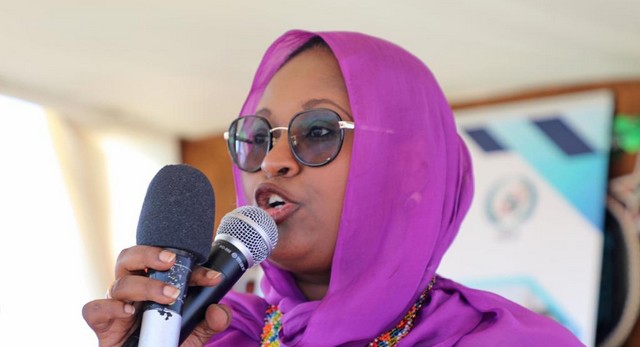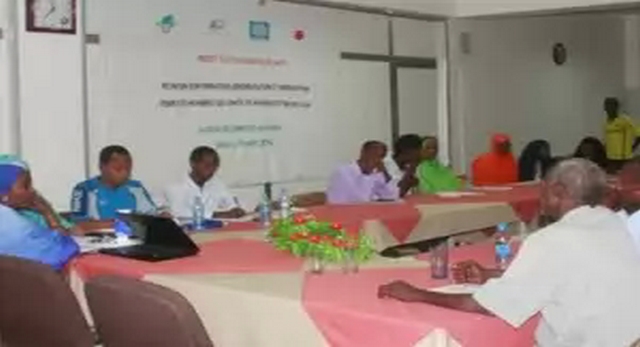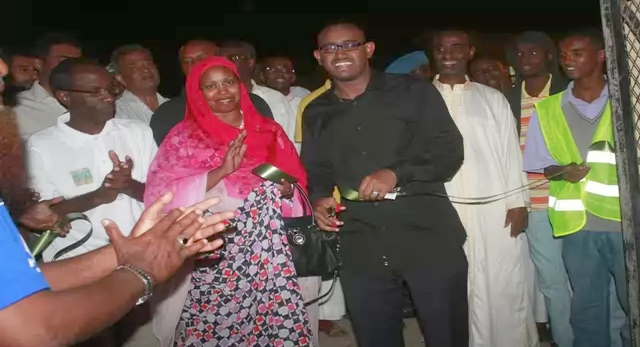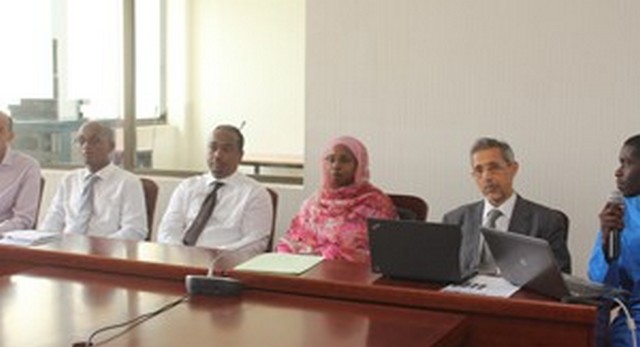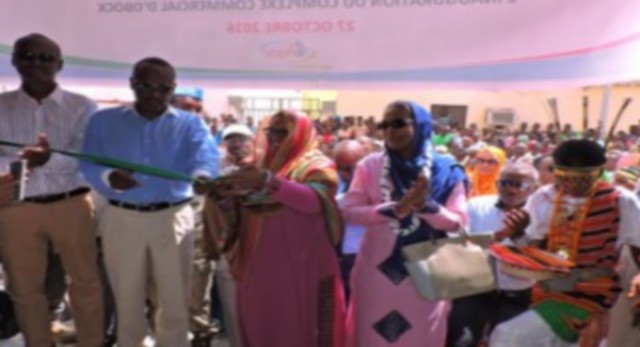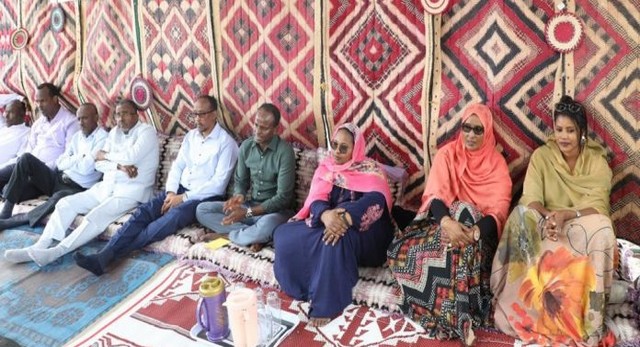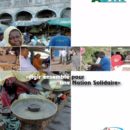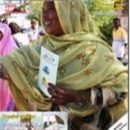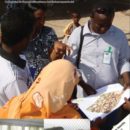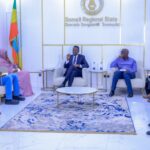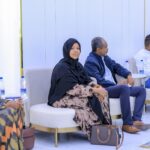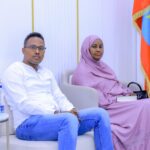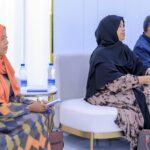The National Solidarity Week in full swing. In the afternoon of Sunday, the State Secretariat for National Solidarity in collaboration with the Ministry of Higher Education and Research conducted at the University of Djibouti a workshop conference on social protection and social programs for students. A meeting organized under the Sundays of the university and that enabled this public mainly composed of students to understand the ins and outs of the social protection system in force in our country.
In recent years, the State Secretariat for National Solidarity under the leadership of Ms. Zahra Youssouf Kayad is on all fronts to combat poverty in all its forms and rush to the aid of the poorest and most vulnerable populations to root out the pangs of poverty.
The resilience of populations to life challenges and missions of this department that does not skimp on ways to overcome this phenomenon.
Establishment of micro-credit, high labor intensive works, empowerment, the NSIS has a variety of programs to curb poverty in our country.
Social protection is at the center of all these devices. It is a key link in the chain of national solidarity whose efforts have turned to reducing economic vulnerability, social, food, nutrition and mitigation of other shocks and stresses.
On the occasion of the national week of solidarity, the NSSS marks a pause to take stock of the activities carried out throughout the year. The meeting at the university was within this framework.
In his introduction to this Conference Dr. Hibo Assoweh Mumin, Director of Student Life at the University of Djibouti said that in a world where the economic problems are becoming more prominent, Islam was able to provide two remedies two winning strategies, because they take into account the social and humanitarian aspect: it is social solidarity and Islamic finance.
Our pastoral Culture, she said, as evidenced by these two great virtues that the West as well as East adopt today to escape the economic crisis and poverty.
And the most efficient solidarity is one that brings together and creates shared between citizens, culturally, historically close (…).
The manager also recalled that, in close collaboration with the Secretariat of State for National Solidarity, the Mensur was quickly targeted the student as a key beneficiary of the social protection program because youth, real asset for the development of country, is also by definition a springboard for solidarity by providing help and support him, it propels the success, professional integration and then turn it will provide assistance to others, and especially to his.
For three years, the University of Djibouti in collaboration with the NSIS is implementing a program of social assistance to poor and vulnerable students and those with disabilities who receive financial support.
She concluded by stating that the results are convincing and today this strategy has three parameters (targeting, proximity and monitoring and evaluation) has born fruit since the latest report shows that a large percentage of students receive state aid succeeded. They are now some 414 students benefit from this program and 600 cases are being processed.
Then it was the turn of the Deputy Representative of UNICEF in Djibouti to speak. He emphasized the partnership between his agency and the NSIS, a partnership based on the “principle of participation and dialogue.”
He said that the university is a breeding ground for any reflection on social dialogue and the students, future leaders, should be involved in discussions and exchange of ideas.
For his part, the Director of National Solidarity, Ms. Amina Ahmed Warsama, presented the program of social safety nets available to the population and which aims to protect against the rigors of life. They enhance human capital through training, education and access to basic social services.
But also a redistribution of wealth by reducing inequality and building bridges between the state and the citizen. For older people, the safety net program offers financial assistance.
In general, the program provides social safety nets as explained Ms. Warsama ensure the effectiveness and efficiency of aid from the perspective of exit strategy from poverty and the establishment of a good system of monitoring and very effective evaluation.
As for Mr. Abdallah of UNICEF, he introduced the social protection system and the UNICEF strategy to improve the situation of children in our country in collaboration with the State Secretariat for National Solidarity.
This has resulted in legislative and policy reforms to ensure fairness and to eliminate discrimination and the establishment of an inclusive social protection.
It has also resulted in the establishment of program against HIV / AIDS, adolescents and pregnant women and social welfare and health care services.
He stressed that the establishment of in national poverty observatory is a real necessity and it would coordinate national policies in this direction.
The conference ended with questions addressed to stakeholders and on the system of social protections and heated debate.
National Solidarity Week: animated debates on social protection at UD
A propos

L’Agence Djiboutienne de Développement Social, Etablissement public à caractère administratif, issue de la fusion de l’ancienne Agence Djiboutienne d’Exécution des Travaux d’Intérêt Public (ADETIP) et de l’ancien projet Fonds Social de Développement (FSD).
- Agence Djiboutienne de Développement Social
- Avenue Mohamed DJAMA ELABEH Plateau du serpent
- BP:4298 Djibouti
- République de Djibouti
- Tel: +253 35 86 55/ +253 35 82 82
- E mail: direction@adds.dj
- Site Web: www.adds.dj
Nous localiser via google map
© Agence Djiboutienne de Développement Social - 2025. Tous droits réservés

